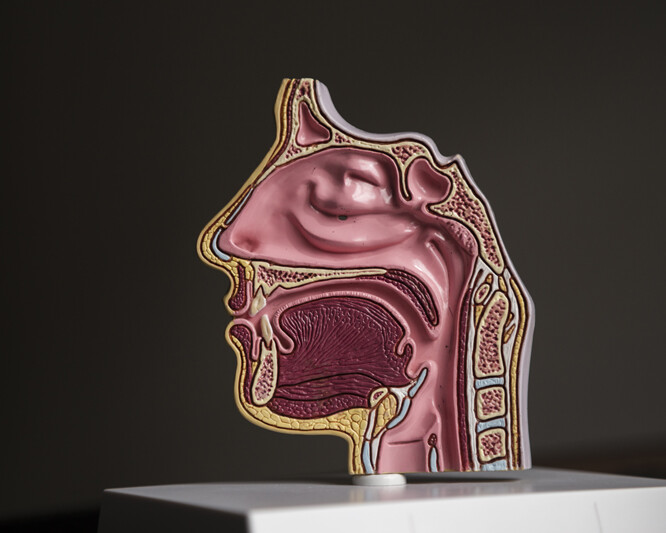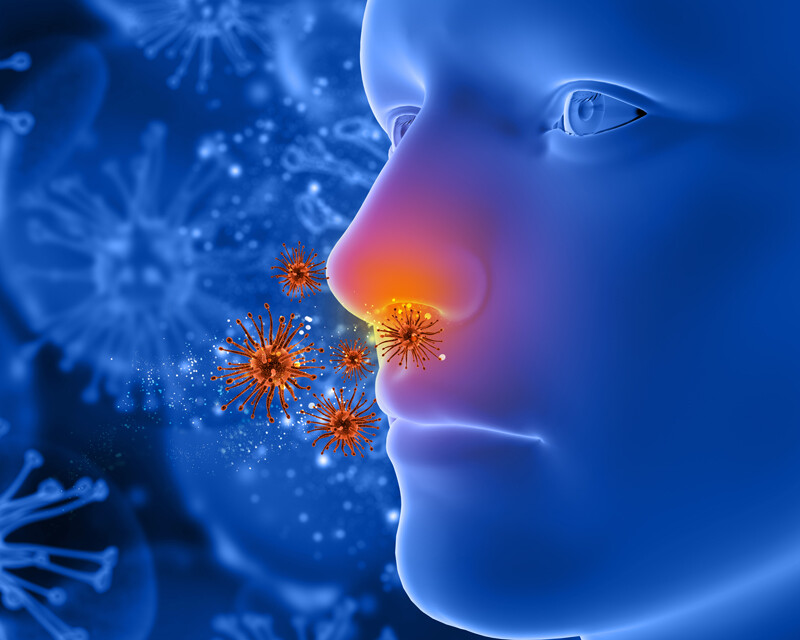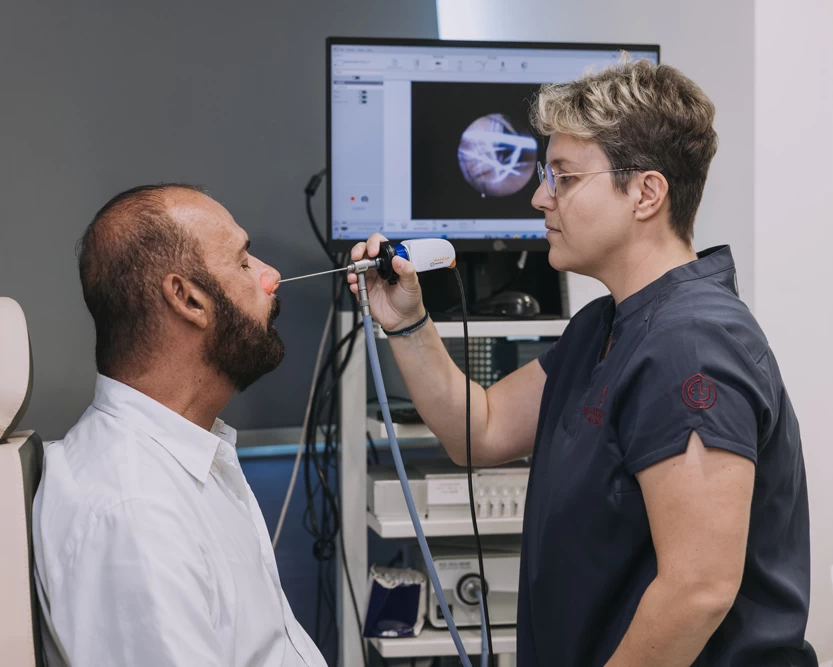
Nose
Why Nasal Health Matters
The nose is not just the “organ of smell.” It is the primary airway for breathing and serves as the first line of defense for our respiratory system. Conditions such as rhinitis, deviated septum, or nasal polyps can significantly impact quality of life, sleep, exercise, and the overall health of the lungs and ears. Early diagnosis and treatment of nasal disorders help prevent complications and greatly improve respiratory function and daily well-being.
Dr. Kosmidou’s Approach to Rhinology
Dr. Panagiota Kosmidou, ENT Surgeon and Director of the ENT – Head & Neck Surgery Center at the Mediterranean Hospital of Cyprus, has specialised expertise in rhinologic conditions and endoscopic surgical techniques. From routine cases of rhinitis to complex sinus surgeries, she approaches each patient with scientific precision, personalised treatment, and a strong focus on safety and patient relief. All procedures are performed using modern endoscopic techniques, aiming for minimal invasiveness and optimal outcomes.

How the Nose Works
The nose filters, humidifies, and warms the air we breathe. It is composed of:
- Nasal septum – divides the nose into two nasal cavities.
- Nasal turbinates – regulate airflow.
- Nasal mucosa – contains cells that filter air and produce mucus.
- Paranasal sinuses (maxillary, frontal, sphenoid) – cavities around the nose involved in voice resonance and breathing.
Any dysfunction (such as deviation, inflammation, hypertrophy, or blockage) can lead to difficulty breathing, nasal congestion, headaches, and recurrent infections.
Symptoms That Require Evaluation
If you experience one or more of the following:
- Chronic nasal congestion
- Difficulty breathing through the nose
- Frequent sinus infections or rhinitis
- Snoring or sleep apnea
- Headaches or facial pressure
- Nosebleeds
- Loss of smell
- Frequent sneezing or itching
- Nasal discharge (clear or purulent)
- Nasal polyps or suspicion of their presence
…a medical evaluation is recommended.


Non-Surgical Conditions & Conservative Management
- Rhinitis (Allergic / Vasomotor): Sneezing, nasal congestion, itching, runny nose. Managed with antihistamines, nasal sprays, or immunotherapy.
- Acute / Chronic Rhinosinusitis (Sinus Infection): Facial pain, pressure, nasal discharge, fever. Managed with antibiotics, decongestants, and nasal irrigations.
- Enlarged Turbinates: Can obstruct airflow. Managed with medication or radiofrequency treatment.
Foreign Bodies in the Nose: Common in children. Immediate removal is required.
Nasal & Sinus Surgical Procedures
Dr. Kosmidou performs advanced endoscopic and functional surgeries for:
- Septoplasty (Nasal Septum Surgery) – Corrects septal deviation and restores proper nasal airflow.
- Turbinate Reduction via Radiofrequency / Ultrasound – Minimally invasive method to improve breathing.
- Endoscopic Sinus Surgery (FESS) – Treats chronic sinusitis, polyps, cysts, with minimal morbidity.
- Polyp Removal – For cases of nasal polyposis.
- Nasal Trauma Reconstruction – Both functional and aesthetic correction.


Breathing & Sleep – Snoring & Sleep Apnea
Nasal conditions can contribute to:
- Snoring
- Obstructive Sleep Apnea (OSA)
Proper nasal airflow is essential for quality sleep. Surgical correction of the septum and turbinates often improves symptoms and enhances the effectiveness of CPAP therapy.
Nasal Diagnostic Evaluation
- Nasal Endoscopy
- Nasal Irrigations & Functional Tests
- CT Scan of the Paranasal Sinuses (when indicated)
- Allergy Testing (in collaboration with a specialist)
- Assessment of Respiratory Function & Sleep


Pediatric Nasal Conditions
- Adenoid Hypertrophy (Tonsillar Tissue) – Can obstruct breathing, cause snoring, ear infections, and mouth breathing.
- Frequent Runny Nose or Nasal Obstruction
- Foreign Bodies / Injuries
Dr. Kosmidou adopts a gentle and personalized approach when treating children.
Frequently Asked Questions
Can a deviated septum be corrected with medication?
No – it can only be corrected surgically.
Do nasal polyps come back?
They can – which is why regular follow-up and conservative management are necessary.
Is FESS painful?
It is an endoscopic procedure performed under general anesthesia with a rapid recovery.
Can my breathing be improved without rhinoplasty?
Yes, if the issue is related to the septum or turbinates.
When to Schedule a Visit
Visit the clinic if you experience:
- Nasal obstruction / snoring
- Frequent sinus infections
- Nasal polyps or facial pressure
- Chronic rhinitis or allergies
- Sleep-related breathing problems
Dr. Kosmidou’s specialized approach provides solutions that help you breathe freely.
